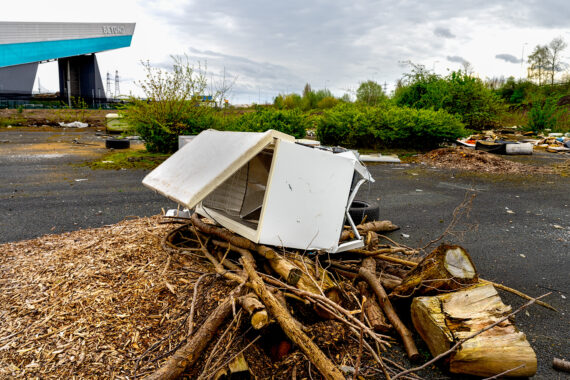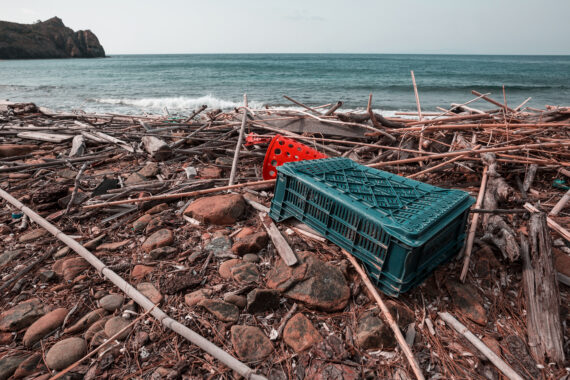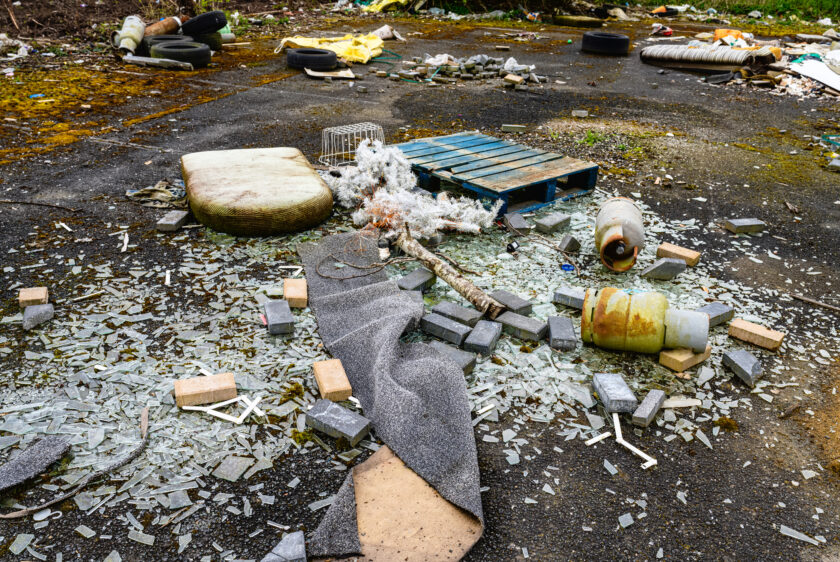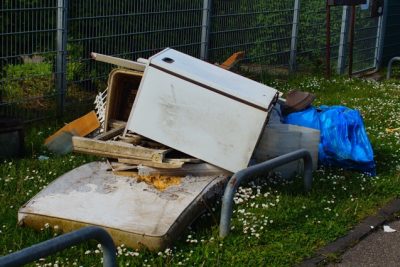As summer approaches, so does Sydney’s storm season, which is unpredictable and often severe, marked by storms, strong winds, and heavy rainfall. While many Sydney homeowners prepare their properties by checking gutters, securing outdoor furniture, and trimming trees, one often-overlooked task is clearing away piles of rubbish or debris that may have accumulated around the home.
Though it may seem harmless to leave rubbish sitting out, this seemingly innocuous oversight can lead to significant problems when summer storms hit. From the risk of flying debris during high winds to the environmental hazards caused by rubbish being washed into waterways, cleaning up your yard and surrounding areas can prevent property damage, protect your family, and help preserve the environment.
One of the most immediate risks posed by piles of rubbish during storm season is their potential to turn into dangerous projectiles in high winds. Sydney’s summer storms are often accompanied by powerful gusts, sometimes exceeding 100 km/h, that can pick up loose objects and send them flying through the air. This can happen with frightening speed, leaving little time to respond once the storm is already underway.
Rubbish, such as loose building materials, broken furniture, garden waste, and discarded household items, can become hazardous projectiles when swept up by high winds. These flying objects can damage roofs, windows, and vehicles and even pose a serious risk to human safety. Small items like metal scraps, glass, or sharp objects can be hazardous, as they may shatter or break upon impact, creating further hazards for anyone nearby.
Beyond the risk to your own property, unsecured rubbish can end up in your neighbour’s yards or public spaces, causing damage to other people’s homes and increasing the risk of injury to others. By proactively cleaning up any rubbish or debris in around the house, you can significantly reduce the likelihood of storm-related property damage and personal harm.

In addition to the threat of flying debris, piles of rubbish around your home can also contribute to clogged gutters and blocked stormwater drains. Stormwater drainage systems are critical during heavy rainfall, as they help divert water from homes and prevent flooding. When rubbish, particularly garden waste like leaves, twigs, or lawn clippings, is left around the yard, it can easily be swept into stormwater drains during heavy rain, which can block the drain and cause water to back up and flood your property.
Similarly, if gutters are clogged with debris, they can’t direct the rainwater away from your roof. If water builds up in the gutters, it can backflow into the eaves and create significant damage to your home’s interior. In severe cases, blocked gutters can cause structural damage to your home, as the excess water can weaken the foundations or walls.
By clearing away rubbish, cleaning out your gutters, and ensuring that your drains are free from obstruction, you can reduce the risk of flooding and water damage to your home during Sydney’s unpredictable storm season.

Beyond the direct threat to homes and personal safety, the accumulation of rubbish around properties also poses a significant environmental threat, mainly when stormwater runoff carries debris into local waterways. Sydney is home to many beautiful rivers, creeks, and beaches, all vulnerable to pollution from urban waste.
When heavy rains occur, stormwater can wash away loose rubbish, such as plastic bottles, food wrappers, and other non-biodegradable materials, carrying it into nearby rivers and stormwater drains. Once in the waterways, this debris can harm aquatic life, contribute to pollution, and degrade natural ecosystems. We all know that plastics aren’t good for the environment, and can take hundreds of years to break down and are particularly harmful to marine life, which may ingest or become entangled in the debris.
In addition, organic waste, such as lawn clippings, leaves, and branches, can also contribute to environmental problems when washed into waterways. While these materials may break down more quickly than plastics, they can still disrupt local ecosystems by altering water chemistry, depleting oxygen levels, and encouraging the growth of harmful algal blooms. This can have a ripple effect, affecting aquatic species and the water quality in Sydney’s rivers and beaches.
Properly disposing of waste and ensuring that your yard is free of rubbish before the storm season begins can help protect Sydney’s precious natural environment from unnecessary pollution and degradation.

Another important consideration is the impact accumulated rubbish can have on your property’s value. Sydney’s property market is highly competitive, and keeping your home looking good and functioning well is crucial to preserving its value. A well-maintained yard and clean outdoor spaces enhance the visual appeal of your property and demonstrate to potential buyers or tenants that the home has been well cared for.
On the other hand, a yard cluttered with rubbish and debris can signal neglect, even if the interior of your home is in good condition. More importantly, failing to remove rubbish before a storm can lead to expensive repairs, as flying debris or floodwater can cause damage to fences, windows, outdoor areas, and even the home itself. In some cases, this can result in significant repair costs that far exceed the simple effort of cleaning up before the storm season begins.

As Sydney’s storm season approaches, cleaning up any piles of rubbish around your home is a simple yet essential step in protecting your property, ensuring your family’s safety, and safeguarding the environment.
By preventing flying debris, reducing the risk of blockages in gutters and drains, and keeping rubbish out of local waterways, you can help mitigate the damage caused by severe weather and contribute to a cleaner, more resilient community.
And of course, if you don’t have the time to clean up your own home before storm season hits …call a professional team like us on 0411 867 719.
A small investment in rubbish removal now, can pay off big time come summer.




